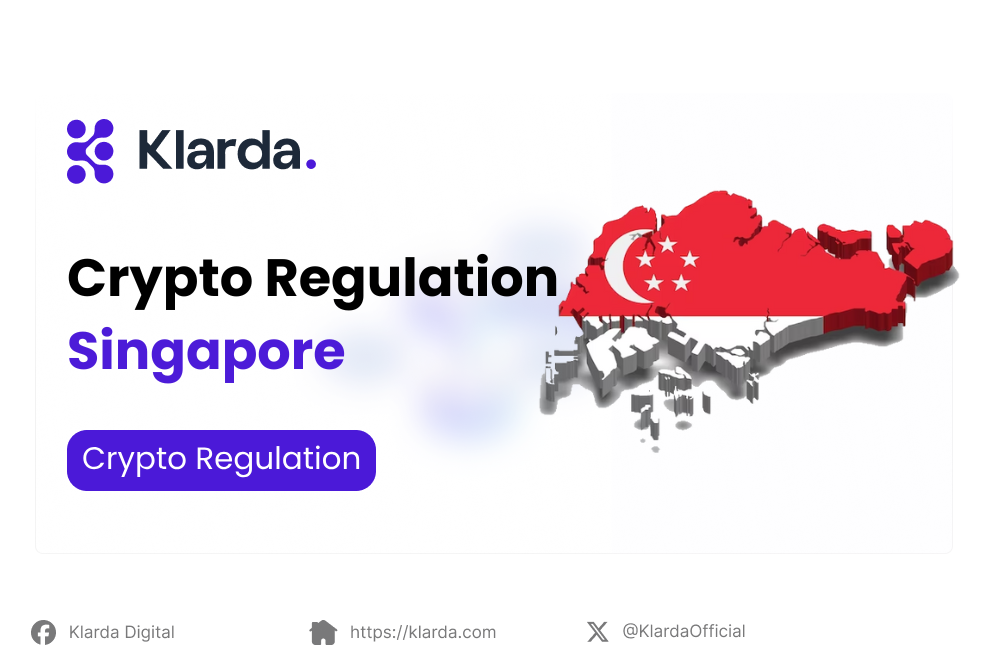Crypto Regulation in Singapore
Learn about Singapore crypto regulation. Explore the latest rules, policies and laws applicable to the cryptocurrency industry in the leading developed country.
In recent years, cryptocurrencies have become a popular investment asset worldwide, including in Singapore. So, are cryptocurrencies and crypto trading regulated in Singapore? Due to their complex nature and inherent risks, cryptocurrencies have also attracted the attention of financial regulatory agencies. To protect consumers and ensure market transparency and safety, the Singapore government has issued specific regulations. Please follow the article below to learn about Singapore crypto regulation.

KEY TAKEAWAYS
- Singapore has a clear and comprehensive legal framework for activities related to crypto and blockchain.
- Singapore is one of the pioneering countries in implementing regulations for managing electronic money.
- Singapore has developed a certification process for ICO projects, ensuring that projects are compliant and adhere to regulations and rules.
OVERVIEW OF SINGAPORE CRYPTO REGULATION
Singapore is one of the pioneer countries in regulating electronic money (crypto). Is buying cryptocurrency legal in Singapore? The Monetary Authority of Singapore (MAS) has issued a series of regulations aimed at protecting consumers and preventing illegal activities related to crypto.
According to MAS regulations, cryptocurrencies are considered assets, not currencies. This means that cryptocurrencies cannot be used as a legal means of payment in Singapore.
Crypto exchanges in Singapore must be licensed by MAS. To be licensed, exchanges must meet capital requirements, risk management, anti-money laundering, customer protection, etc.
MAS issued a stablecoin governance framework in August 2023. The framework requires stablecoins to be issued by MAS licensed entities and to be backed by high-quality assets, e.g. cash or government bonds.
Profits from crypto trading are considered income and are subject to personal income tax or corporate income tax.
Businesses providing crypto services may not advertise their services to retail investors.
Businesses providing crypto services may not advertise their services on public platforms, such as social networks, media, and public transportation.
MAS's regulations on cryptocurrency services are considered quite strict, aiming to protect users and ensure financial security. This regulation also contributes to creating a transparent and healthy business environment for businesses providing crypto services in Singapore.
TYPES OF CRYPTO SERVICES ARE REGULATED IN SINGAPORE
According to the regulations of the Monetary Authority of Singapore (MAS), the types of crypto services regulated in Singapore include:
- Digital Payment Token (DPT) services: This includes providing services such as buying, selling, exchanging, custodial services, management, and issuance of digital tokens. Businesses providing DPT services in Singapore must be licensed by MAS.
- Digital Token Wallet (DTW) services: This includes services such as storage, management, and transfer of digital tokens. Businesses providing DTW services in Singapore are not required to be licensed by MAS but must still comply with MAS regulations on anti-money laundering and terrorism financing.
- Digital Token Exchange (DTE) services: This includes providing services such as market making, matching of orders, and settlement for digital token transactions. Businesses providing DTE services in Singapore must be licensed by MAS.
- Electronic Fund Management for Cryptocurrencies (EFMC) services: This includes managing investment funds for cryptocurrencies. Businesses providing EFMC services in Singapore must be licensed by MAS.
SINGAPORE CRYPTO REGULATION VS. OTHER INTERNATIONAL REGULATION
Singapore has built a clear and strict regulatory foundation regarding cryptocurrencies and cryptocurrencies. These regulations aim to create a safe, transparent and developed business environment for domestic cryptocurrencies.
Singapore's anti-money laundering and terrorist financing regulations comply with the requirements of the United Nations Convention against Illicit Traffic in Narcotic Drugs and Psychotropic Substances).
Singapore's regulations on consumer protection comply with the principles of the United Nations Convention on the Protection of the Rights of Consumers.
Singapore's regulations in the cryptocurrency and cryptocurrency sector are based on internationally recognized principles and standards. Singapore has sought to harmonize creating a safe and competitive cryptocurrency environment with maintaining compliance with international principles and standards.
In addition, Singapore has also committed to participating in multilateral trade agreements such as the Trans-Pacific Partnership (TPP) and the US-Asia Trade Partnership Agreement (RCEP).
Above are the things you need to know about Singapore crypto regulation. Cryptocurrency is a new and potential technology, but also has many potential risks. It can be seen that Singapore is trying to build a crypto legal framework in accordance with international standards and ensure transparency and safety in the operation of the crypto market. However, these regulations are still in the process of being finalized and need to continue to be updated to suit the development of the crypto market.
Updated 9 months ago